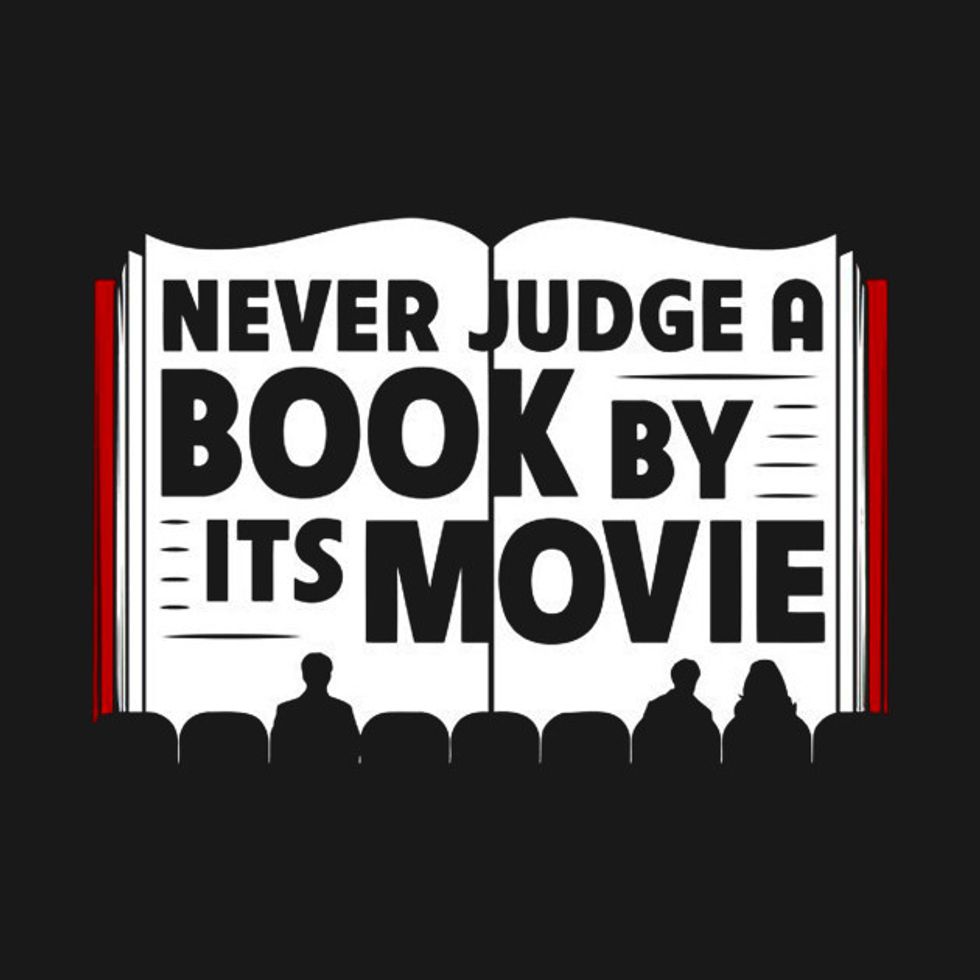So, I recently heard that there is going to be a live-action adaptation of Avatar: The Last Airbender series, and I really didn't know how to handle this news. Mainly because it comes with a large sense of mixed feelings. First and foremost, I can thank Nickelodeon and co. for completely desecrating my favorite show. From an empty script to an empty plot, to mediocre acting, and an ethnically incorrect cast, the movie looked like a disaster, to begin with, but my blind affection for the series made me endure the 1 hour and 43 minutes of torture. Just thinking about it now makes my blood boil, but my hatred for the botched film isn't what I'd like to talk about today. In fact, the other side of my "mixed feelings" for this upcoming live-action series is a sense of redemption for the entire series. But, again, the specifics of my feelings for the Avatar series isn't what brought me here today. The main point I want to discuss is: "what makes a film adaptation good?" As a disclaimer, I just want to note that I am in no way a Hollywood production professional, but just wanted to give my thoughts on what I feel generates a good film adaptation.
There are a few factors that should be considered when thinking of a film adaptation, which is story, character, length, and inner voice.
Let's start off with "story." Obviously, the writing styles of a book author and a screenwriter are completely different. From the characters' actions to the surrounding environment, a novel/book writer has the task of painting a picture in a reader's head. Whereas the screenwriter puts a little more focus on the dialogue throughout a movie and how it can progress a story and grasp an audience (of course, acting plays a large role in this aspect as well). Despite the difference in writing styles, one thing needs to remain the same, and that is the story. Without a good story to help shape the characters, there isn't really anything that'll grab the audience. This has become an issue for Hollywood production companies to successfully translate some of the great stories. Take, for example, the movie and book "Paper Towns." The book was a semi-dark story about a boy in search of his friend who he thought was going to hurt herself. The movie gave a different vibe of a funny teen adventure story. The movie utilizes the book very well and doesn't completely stray from the details. However, it is the core of the story that got skewed and forever changed the overall feeling. Finding the core value of a story isn't difficult, but for some reason, Hollywood doesn't really care at times.
The second aspect of a good film adaptation has to be "character." What's a good story without a great character? And more importantly, is the character relatable in any way? While the story is what gets people into the seats, it's the characters that'll make viewers stay.
Length is an important factor that gets overlooked and tends to get tricky. The length of a movie rarely fully translates the full length of a book. Just like some movies that go through the cutting sequence (ahem, WB), books tend to get viciously cut and reworked as well. Almost to the point where the movie ends up being completely wrong. But here's the thing, no matter how much you want every detail of a book to make it onto the screen, there is just absolutely no way for that to happen within a 2-hour window. "Lord of the Rings" has an extended cut that has the movies running for a total of 11 hours (11.4 hours to be exact), and I still hear some diehard fans say there are some missing points in the films. "Lord of the Rings" may be an outlier, because that might be the only trilogy I am willing to sit through in its extended entirety. But then there are movies like the "Harry Potter" series. Despite the worldwide success, some of the films are known to have been severely cut and have a lot of missing details that the fans would have liked.
My final input for a good film adaptation is a character's "inner voice." This ties in with the character, but the benefit of reading a book and understanding a character is that you tend to get the full details of a character's thoughts. If it's a first-person story, then there is absolutely no reason for you to not understand the true nature of the character. Even in novelized fiction stories, the author is able to tell the reader what a certain character is thinking. Movies don't really have that opportunity unless it's a narrated tale. Movies have to rely on character mannerisms and delivery of dialogue, and outside character descriptions in order for the audience to connect. The characters people relate to the most are the ones who are the most vulnerable to readers. When readers understand the deepest parts of a character that story becomes something else for them.
So, those are just a few short thoughts on what I think should be the focus when adapting a movie. I know it's some obvious details, but for some reason, there are plenty more bad film adaptations than good ones.






 The minimum wage is not a living wage.
StableDiffusion
The minimum wage is not a living wage.
StableDiffusion
 influential nations
StableDiffusion
influential nations
StableDiffusion







